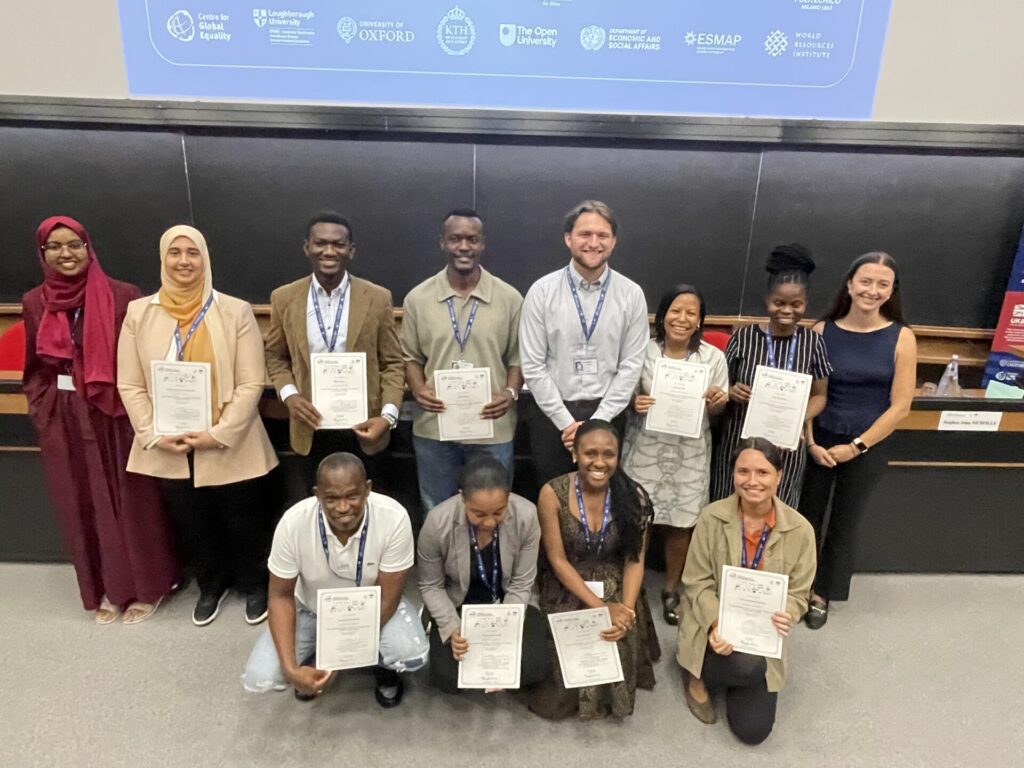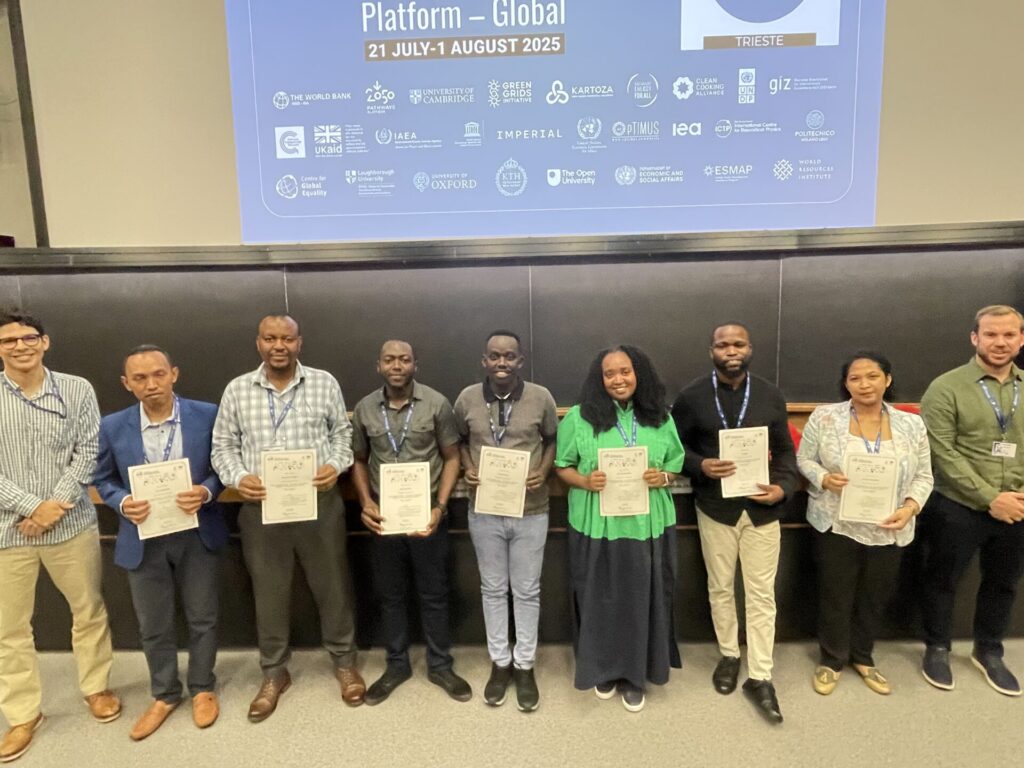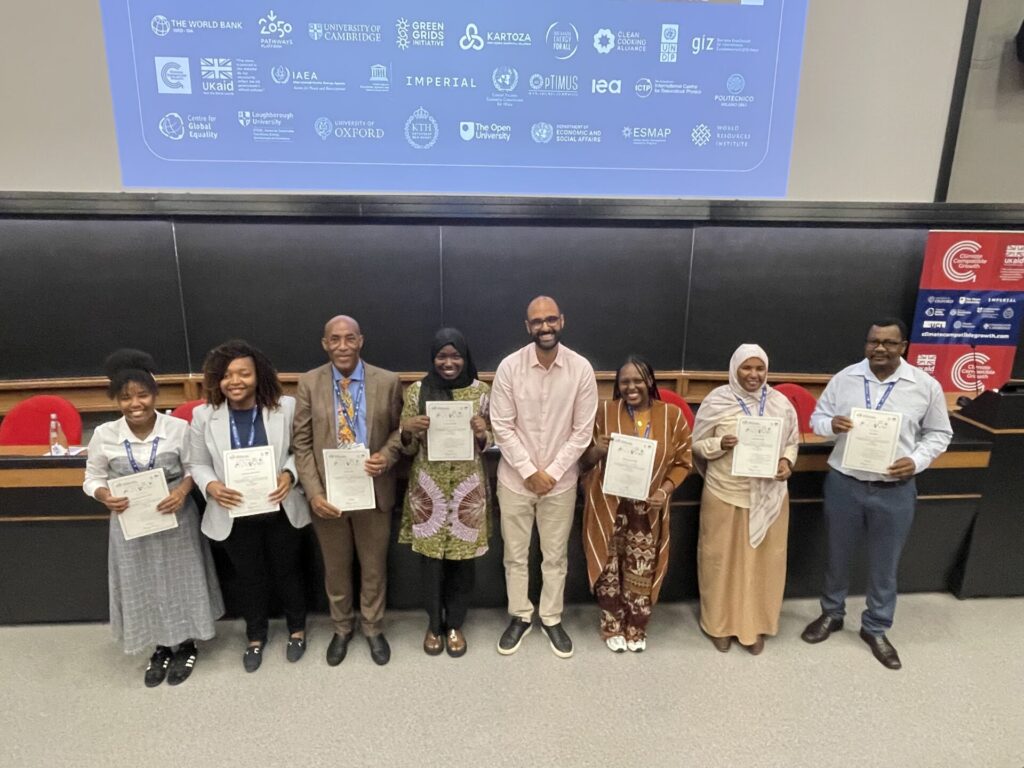CCG has capacity building right at its heart, with an emphasis on democratising access to energy modelling skills in the Global South. The Open University (OU) has 55 years of experience in improving access to higher education. Its ethos – “Open to people, places, methods and ideas” – matches CCG’s aim perfectly. So 5 years ago, we decided to cooperate and here we are now, celebrating our partnership and the remarkable outcomes it has produced. Rudolf Yenganyen explains.
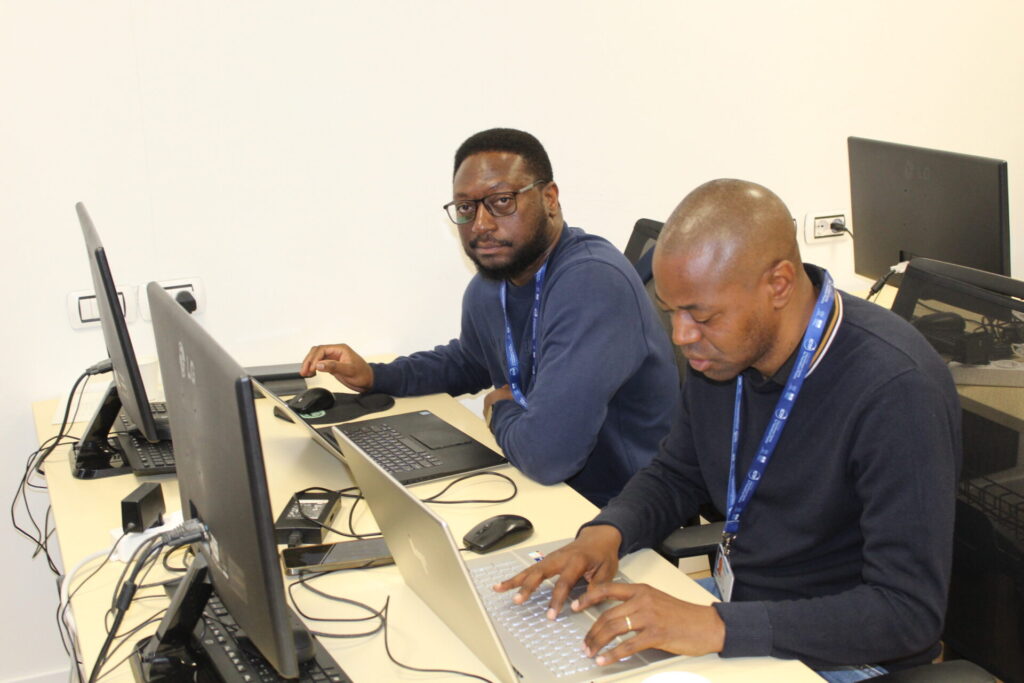
Five years of Achievements
Thanks to this close collaboration with the OU, right from the outset of the initiative, CCG has been able to build up the OpenLearn Collection (OLC): a web platform hosting free, easily accessible, interactive and self-administered online courses. Through the first five years of the collaboration, this platform has continuously expanded and now hosts a total of 18 courses, representing 384 learning hours in total. Courses have been developed by various universities from the CCG consortium (Imperial College London, University of Oxford, Loughborough University, University College London) as well as a range of international partner organizations (IRENA, PoliMi, SEforALL, World Bank Group, World Resources Institute), and these are regularly updated to capture additions and enhancements to the modelling tools.
The OLC is comprehensive, and covers these aspects of climate transition:
- Long term energy system planning (MAED, OSeMOSYS/FlexTool);
- Planning for universal energy access (EAE, OnSSET, OnSTOVE, MicroGridsPy);
- Energy related data storage techniques and modalities (EBS, GDM);
- Mobilizing finance for climate transition (MINFin, FinPlan, Transport D2D);
- Whole system resource planning (CLEWS);
- Macroeconomic and behavioural modelling of energy (MARIO, MUSE);
- Political economy of energy modelling;
- Developing climate resilient infrastructure networks (NISMOD).
To further expand access across Africa and Latin America, five of the most widely used courses (MAED, OnSSET, OSeMOSYS, CLEWS, FinPlan) have been translated into French and Spanish.

Interest in the OLC has been strong, with 50,000 downloads reached in the first 18 months of the platform. Momentum continues to grow with an exponential surge of interest in the last 18 months. Cumulative downloads of course material reached a remarkable 350,000 as of May 2025 (Figure 1).
OU Principal Investigator Stephen Peake, Professor of Climate Change and Energy at the School of Engineering and Innovation commented, “The Open University is delighted to see the exponential uptake in our OpenLearn Collection courses co-created with CCG partners. This clearly demonstrates the winning combination of leading edge energy transition content with leading edge distance learning pedagogy techniques.”
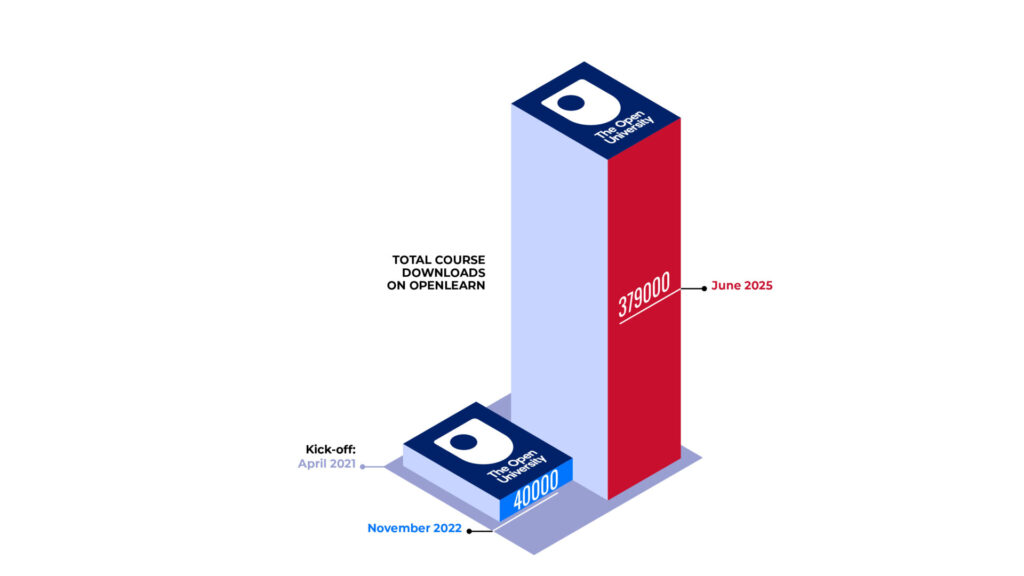
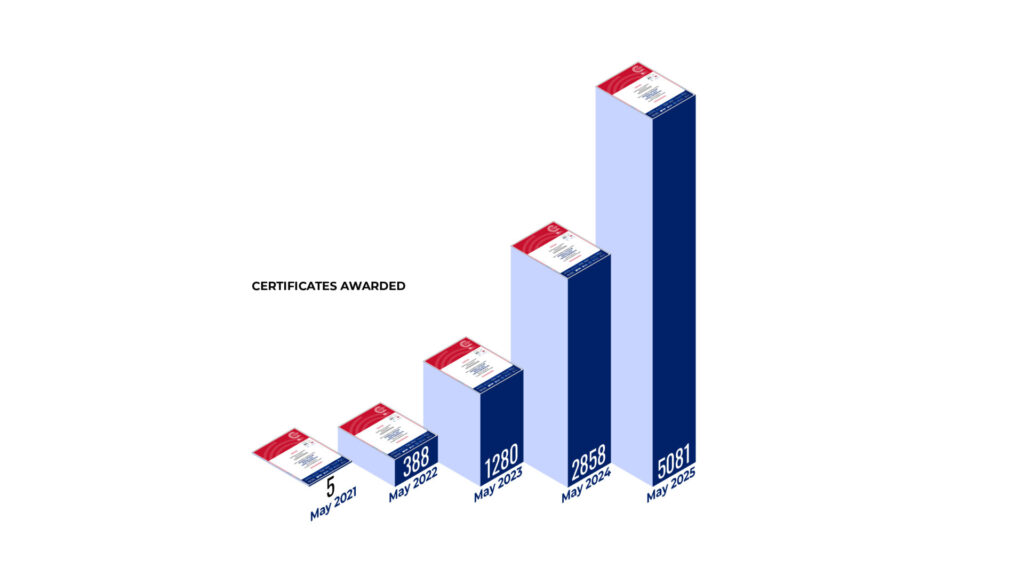
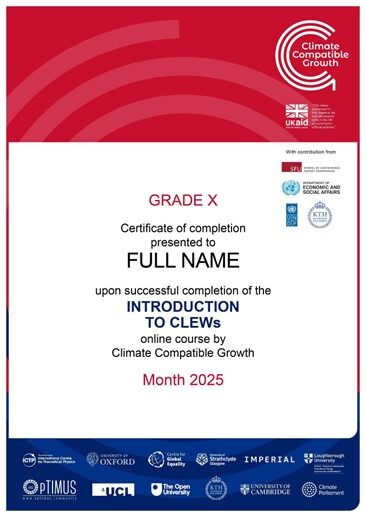
The massive expansion of the OLC can be attributed to the following factors:
- Ease of access and use – participants can enrol on any given course by simply creating an account. They can learn at their own pace without need for supervision;
- Digestible course formats – the OU allows for lecture material to be structured in digestible blocks each with accompanying quizzes and hands-on exercises to promote modular learning;
- Intelligent feedback loops – the ‘backend’ of each OU course collects data on completions per course unit, enabling course creators to identify drop off points. This informs improvements to the courses; and
- Simple path to certification – upon completion of a given course, including all quizzes, if a participant obtains the appropriate pass grade, a certificate is automatically generated (Figure 2).
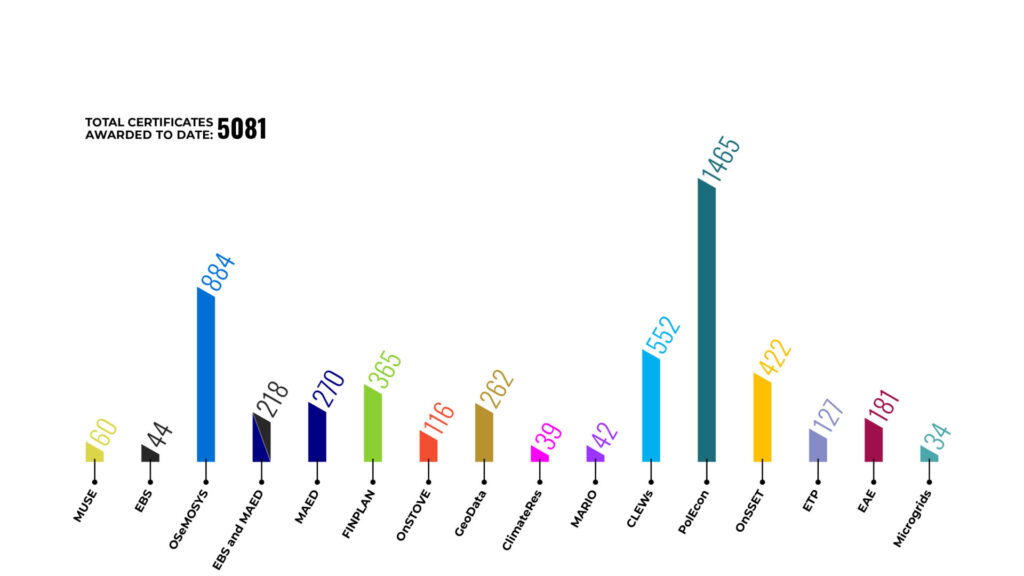
Over 4,600 learners have achieved certification through successful completion of full courses. Some 700 of these have gone on to participate in the Energy Modelling Platform – a three-week intensive face-to-face capacity building event organized by CCG and partners at different locations around the world. Prior completion of the corresponding OLC courses is an application prerequisite providing all students with a common foundational level. More than 80 percent of those achieving online certification have done so through their own motivation.
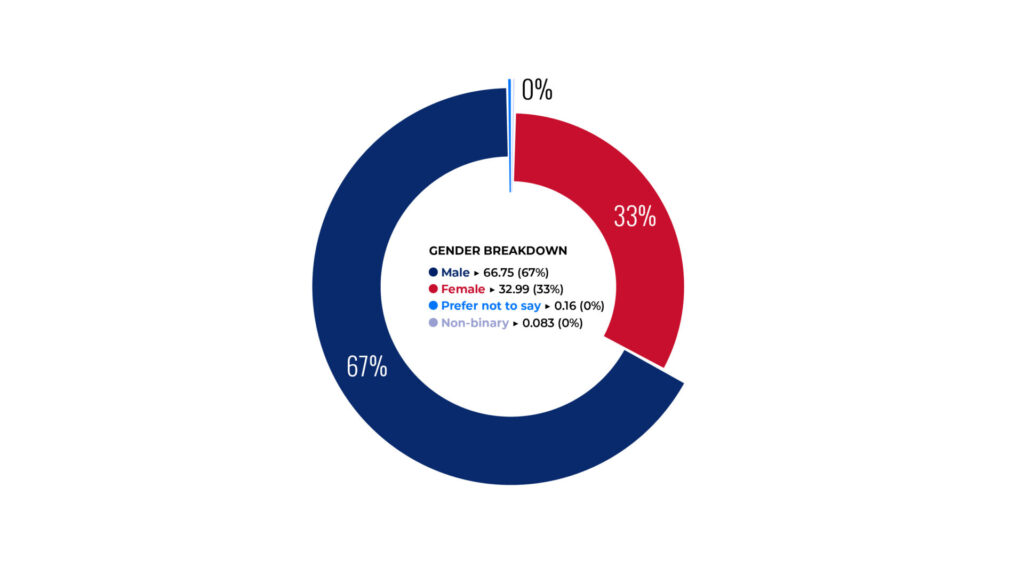
Some of the most popular courses for which online learners have achieved certification include Energy and Flexibility Modelling: OSeMOSYS & FlexTool, Financial Analysis of Power Sector Projects Using the FINPLAN Model, Introduction to CLEWs, Modelling, Policy and Political economy, OnSSET/The Global Electrification Platform (Figure 3). Moreover, in a traditionally male-dominated technical field such as energy modelling, it is encouraging that one in every three learners achieving certification is female (Figure 4).
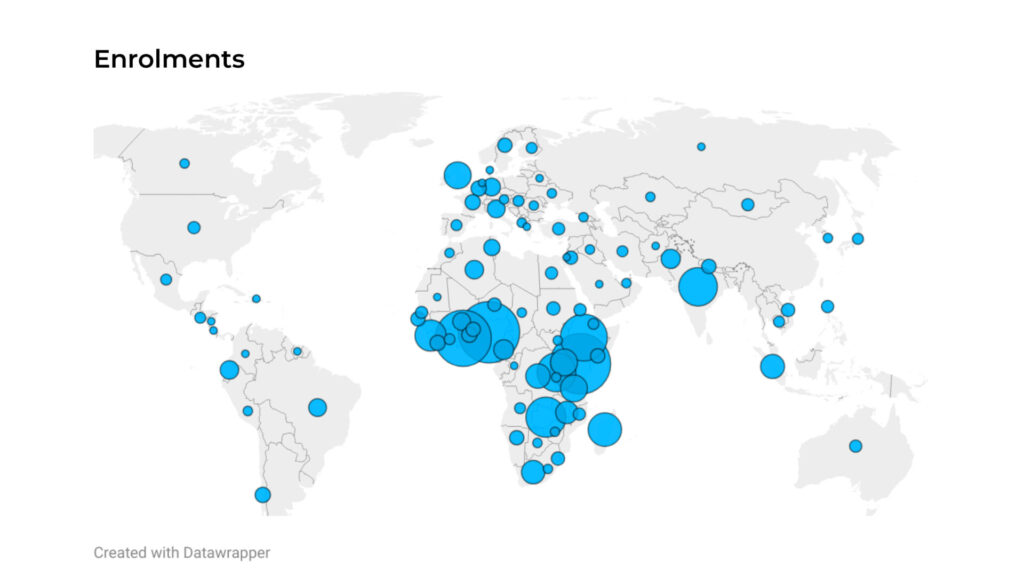
OU Research Fellow, Dr Ashutosh Bhagurkar, from the Faculty of Science, Technology, Engineering and Mathematics who manages the Open Learn Collection reflected,
“We are particularly glad to see that the bulk of our uptake has been in Sub-Saharan Africa and other developing regions, where access to educational resources is often constrained.”
Indeed, by far the highest number of online enrolments (75%) has been on the African continent, with the strongest participation from countries such as Kenya, Ghana, Nigeria, Ethiopia, Zambia. There is also significant participation across Asia, Latin America and the Middle East, as well as Europe.
Looking ahead to the next five years
With CCG now extended until 2030, there will be plenty of opportunities to build on the record of success from the first five years. The team plans to expand and enhance its offerings by developing targeted learning materials in areas such as sustainable energy, sustainable mobility, urban planning, and systems thinking. For example, future courses are planned to include the World Bank’s Fossil Fuel retirement model; an additional and more in-depth Political Economy course covering specific themes; and other courses in collaboration with international partners. The next expansion of the course accessibility will focus on offering the OSeMOSYS, CLEWs, MAED, OnSSET, and FinPlan courses in Portuguese.
An important new area of collaboration with the Open University is the introduction of a digital badging system, enabling learners to earn recognition for their achievements through microcredentials that can be displayed on platforms such as LinkedIn. Learners can work towards Bronze, Silver and Gold level proficiency in particular energy modelling tools as they progress from initial training through to policy and research applications. In addition, learners can work towards Associate and Lead Instructor badges recognizing progression in the ability to teach others. The badges help to both incentivize and recognize skill acquisition beyond the foundational level provided by OLC and, significantly, allow third parties to search and locate people with particular skill profiles.
In sum, the collaboration between OU and CCG on the development of the OLC has far exceeded expectations in terms of the broad reach and appeal of the climate training curriculum, building confidence in regions where climate education is critically needed. This collaboration has proven to be vital for both CCG and international partners alike, where the courses have been used in numerous capacity building events, acting as a starting point for any keen learner. It is vital to note that without the OU, CCG would not have been able to expand its capacity building ecosystem, hence the role that OU plays in overall CCG activities is of utmost importance. And with this, we are certain that the coming years will result in more stories of success, with the OU leading the way for accessible and free knowledge transfer like no other institution.
